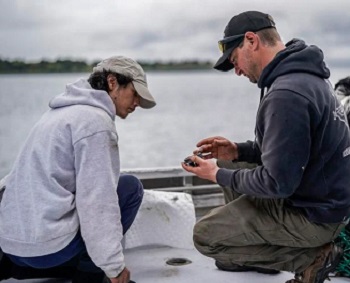 Lane Bolich first came to work in Alaska for the freedom and excitement that comes with being a fisher. A self-described adrenaline junkie, Bolich moved from his hometown in rural Washington state because he loves being on the ocean even in cold winter weather and it gave him the chance to make more money than back home. After working as a deckhand for two years on a family friend’s boat, Harmony, he took the wheel as captain this year at just 20 years old. Bolich is a rarity in an aging industry with high barriers to entry, equipment and access rights are costly, and increasing unpredictability as human-caused climate change alters marine habitats. As some fish populations dwindle and fewer people pursue the trade, fishers and conservation groups are actively working to bring in and retain the next generation of fishers through grants and training even as the industry continues to shrink in Alaska. 19 photos, >>click to read<< 09:38
Lane Bolich first came to work in Alaska for the freedom and excitement that comes with being a fisher. A self-described adrenaline junkie, Bolich moved from his hometown in rural Washington state because he loves being on the ocean even in cold winter weather and it gave him the chance to make more money than back home. After working as a deckhand for two years on a family friend’s boat, Harmony, he took the wheel as captain this year at just 20 years old. Bolich is a rarity in an aging industry with high barriers to entry, equipment and access rights are costly, and increasing unpredictability as human-caused climate change alters marine habitats. As some fish populations dwindle and fewer people pursue the trade, fishers and conservation groups are actively working to bring in and retain the next generation of fishers through grants and training even as the industry continues to shrink in Alaska. 19 photos, >>click to read<< 09:38
Tag Archives: Linda Behnken
Western Alaska tribes, outraged by bycatch, turn up the heat on fishery managers and trawlers
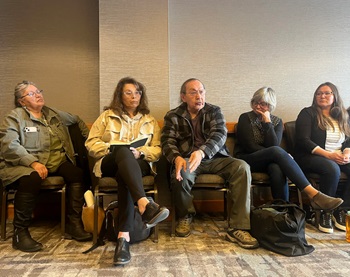 Earlier this spring, Maurice McGinty, a tribal leader from the village of Nulato, pulled out his last mason jar of smoked Yukon king. “We have no more now,” said McGinty, 80. He added: “They are pushing us, and our traditional way of life, into a hole.” Imagine hearing and reading versions of McGinty’s story dozens of times, told by Indigenous people who live along the Yukon and another iconic subsistence river in Southwest Alaska, the Kuskokwim. That’s the reality this week for the policymakers on the North Pacific Fishery Management Council, the federal commission that regulates commercial fishing in the American waters of the Bering Sea. On one side are tribal leaders from the Yukon and Kuskokwim, On the other side are representatives for the trawlers, more, >>click to read<< 13:51
Earlier this spring, Maurice McGinty, a tribal leader from the village of Nulato, pulled out his last mason jar of smoked Yukon king. “We have no more now,” said McGinty, 80. He added: “They are pushing us, and our traditional way of life, into a hole.” Imagine hearing and reading versions of McGinty’s story dozens of times, told by Indigenous people who live along the Yukon and another iconic subsistence river in Southwest Alaska, the Kuskokwim. That’s the reality this week for the policymakers on the North Pacific Fishery Management Council, the federal commission that regulates commercial fishing in the American waters of the Bering Sea. On one side are tribal leaders from the Yukon and Kuskokwim, On the other side are representatives for the trawlers, more, >>click to read<< 13:51
OPINION: North Pacific Fishery Management Council is acting to reduce bycatch
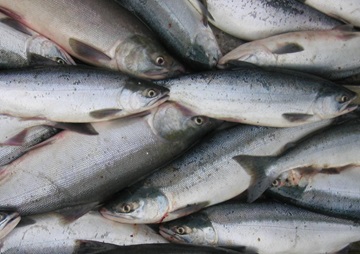 In a recent opinion piece, Brooke Woods, Linda Behnken and Nanci Morris Lyon stated, “Federal fisheries off Alaska are managed via the dictates of the North Pacific Fishery Management Council (NPFMC), which has done little to address the trawl fleet’s enormous bycatch of species immeasurably important to Alaskans.” Nothing could be further from the truth The council adopted hard caps for chinook salmon in the Bering Sea trawl pollock fisheries that vary depending upon the expected returns to western Alaska rivers. When expected returns are low, the caps are adjusted downward. Additionally, the fishing industry has stepped forward to implement chinook salmon avoidance measures that hold each vessel accountable for limiting bycatch to below the caps. In fact, the fleet is well below their caps, recognizing the need to rebuild these stocks. >>click to read<< 15:55
In a recent opinion piece, Brooke Woods, Linda Behnken and Nanci Morris Lyon stated, “Federal fisheries off Alaska are managed via the dictates of the North Pacific Fishery Management Council (NPFMC), which has done little to address the trawl fleet’s enormous bycatch of species immeasurably important to Alaskans.” Nothing could be further from the truth The council adopted hard caps for chinook salmon in the Bering Sea trawl pollock fisheries that vary depending upon the expected returns to western Alaska rivers. When expected returns are low, the caps are adjusted downward. Additionally, the fishing industry has stepped forward to implement chinook salmon avoidance measures that hold each vessel accountable for limiting bycatch to below the caps. In fact, the fleet is well below their caps, recognizing the need to rebuild these stocks. >>click to read<< 15:55
Doug Vincent-Lang
As climate change and high costs plague Alaska’s fisheries, fewer young people take up the trade
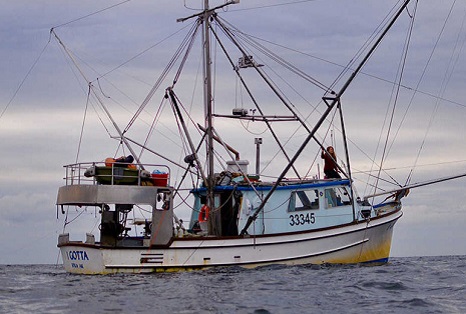
Battery-Electric Fishing Vessel Marks a Sea Change for Small Commercial Fishers
On a brisk morning this fall, a 46-foot commercial fishing boat will cruise into the cold waters of Sitka, Alaska, and cut the diesel engine. In that moment of near silence, an electric motor will whir to life. This moment will mark a sea change for Sitka’s small-boat commercial fishing industry: a transition to energy-efficient commercial fishing, powered by low- and zero-emissions propulsion systems. The boat in question, a small commercial salmon troller named I Gotta, will make history as one of the first low-emissions fishing vessels ever deployed in Alaska. Using a unique parallel hybrid battery-diesel system, the boat can travel at full speed using its diesel engine, then switch to a battery-electric motor when fishing. In this way, I Gotta’s captain, Eric Jordan, will be able to cut the boat’s fuel use by 80%. >click to read<
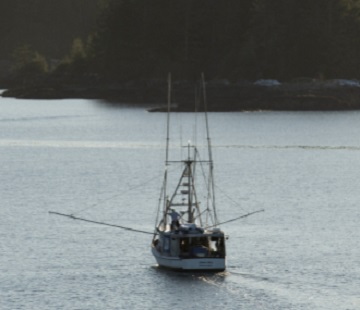
Seattle judge’s ruling might cancel Alaska commercial king salmon season
A ruling from a U.S. judge in Seattle could effectively shut down commercial king salmon trolling in Southeast Alaska, a valuable industry that supports some 1,500 fishermen, after a conservation group challenged the harvest as a threat to endangered killer whales that eat the fish. Wild Fish Conservancy, the organization that brought the lawsuit, heralded the decision as the most significant government action in decades to provide more food for starving orcas. But fishing organizations condemned the ruling, saying it threatens the region with economic disaster and would do little or nothing to benefit orcas. The state of Alaska quickly announced an appeal. >click to read< 10:12
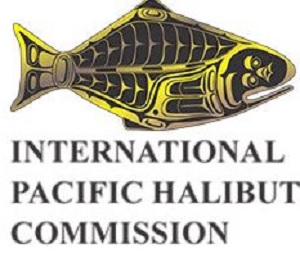
Commission cuts halibut limits across Alaska, Canada
The International Pacific Halibut Commission adopted its annual catch limits for halibut in 2023 from California to the Bering Sea at its meeting Jan. 27. Coastwide, the total constant exploitation yield, a term for how many total halibut longer than 26 inches are removed from the population, regardless of reason, is just shy of 37 million pounds, a 10% drop from 41.2 million pounds last year. Every regulatory area received a cut except for 2A, which covers California, Oregon and Washington. Area 3A, which covers the central Gulf of Alaska, and area 4A, which covers the eastern Aleutians, saw the largest cuts at 17% each. Southeast Alaska only saw a 1% cut, while the western Gulf, western Aleutians and central Bering Sea each saw 6% cuts. The Canadian coast saw a 10.3% cut. >click to read< 11:50
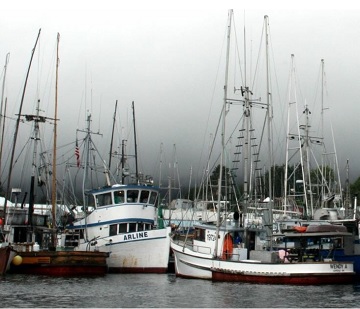
Sitka Assembly considers helping Southeast trollers in legal fight that could shut down the fishery
The Seattle-based environmental group Wild Fish Conservancy wants to stop the Southeast troll fisheries, which they say harm an endangered population of orcas. And in December, a federal judge in Washington issued a report that puts the fisheries at risk of closure. The Alaska Trollers Association is a defendant in the 2020 suit against the National Marine Fisheries Service. Sitka fisherman Matt Donohoe is the president of the Trollers Association. He says they object to the report and expect their legal expenses to increase. “Anyone claiming that Southern Resident killer whales are starving because Alaska trollers were taking food from the mouths of their babies would be laughed out of court. That’s what we thought,” >click to read< 11:48
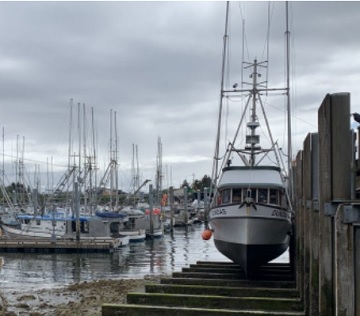
After boatyard plan falls through, assembly to reconsider haulout options
Sitka is without a working boat haulout, following the closure of the facility that served most of the fishing fleet at Halibut Point Marine. Last summer, the Sitka Assembly began working with the Sitka Community Boat Yard to develop a haulout at the Park. The group secured a lease with the city in July of 2021, but the plan has since fallen through. At an assembly meeting in early May (5-10-22), Linda Behnken, who was leading the boat yard project with a coalition of local fishermen said they’d been ready for liftoff when the cost of construction jumped. “We did, before we responded to the RFP, have sufficient funds to build a boatyard at GPIP,” Behnken said. “Then cost increased, almost doubled, on us. >click to read < 16:00
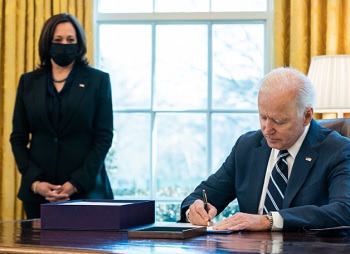
At-Sea Processors Association and Seafood Harvesters of America applaud “30×30” initiative
A Biden administration plan to conserve at least 30% of federal lands and oceans by 2030 is winning applause from the seafood industry, but questions abound elsewhere, raising political obstacles. Just about 12% of the nation’s land area is currently under some form of environmental protection, along with about 26% of the country’s ocean areas. The plan, an executive order issued by the Biden administration, and popularized as the “30×30” initiative, has won support from the harvester and processor sector of Alaska fisheries and others, (do you?) in that industry, but farmers and ranchers elsewhere remain skeptical. >click to read< 12:50
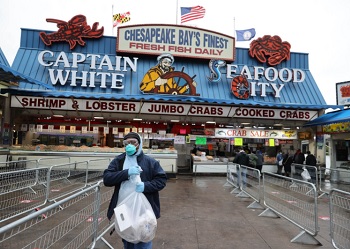
The Coronavirus pandemic could change U.S. fisheries forever. Will it be for better or for worse?!
The first symptoms appeared long before Covid-19 gained a stronghold on U.S. shores, as China went into its first lockdown and a critical export market disappeared overnight,,, Then as social distancing rules kicked in here, another major organ of the U.S. supply chain, restaurants, where most seafood purchases are made, fell limp. Many fishermen across the country have pivoted to direct-marketing models by selling their catch off their boats,,, To many in the food industry, the pandemic’s impact has exposed the fundamental vulnerabilities of a system that has long favored efficiency over resilience. >click to read< 09:48
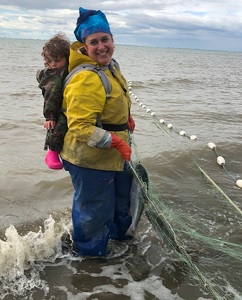
How Alaskan Fishermen Are Dealing With The Coronavirus
While the pandemic is crippling every industry, the seafood supply chain is at a standstill. Producing more by volume than all other states combined, Alaskan fisheries are exceptionally important to seafood markets. The outbreak could disrupt the start of salmon season for Alaskan fishers this year, and there is currently little understanding of how the seafood industry will be affected now and in the future. The salmon season in Alaska runs from May through September. In this time, many fishers pull in a majority of their annual income. >click to read< 17:44
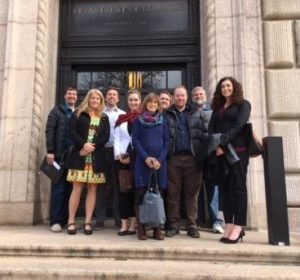
Alaska Fishing Delegation Heads To Washington
Representatives of the Alaska Longline Fishermen’s Association and the Alaska Marine Conservation Council– both members of the nationalFishing Communities Coalition (FCC) – were in Washington, DC, this week urging lawmakers to resist shortsighted efforts to weaken fishing communities by undermining key Magnuson-Stevens Act accountability provisions.,,, “The MSA is working in Alaska and around the country because all sectors adhere to scientifically-sound annual catch limits. >click to read<09:54
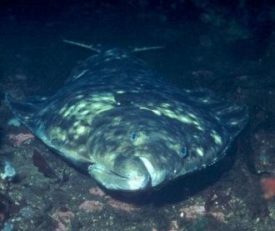
International Pacific Halibut Commission disagrees on catch cuts
Commissioners from the U.S. and Canada this week could not agree on the size of catch reductions that fishing fleets in the two countries should take for halibut along the Pacific coast this year. Commissioners from the two countries signaled their intent to make fishing cuts for the valuable bottom fish but not as large as the cuts suggested by staff earlier this winter. The six-person commission has three members from the U.S. and three from Canada. Their annual meeting was in Portland, Oregon January 22nd-26th. >click here to read< 20:21

A tricky break for business fishermen: Pacific halibut catches more likely to drop subsequent 12 months
It‘s going to be a tough year for many Alaska fishermen. After announcements of a massive drop in cod stocks, the industry learned last week that Pacific halibut catches are likely to drop by 20 percent next year, and the declines could continue for several years. That could bring the coastwide catch for 2018, meaning from Oregon to British Columbia to the Bering Sea, to about 31 million pounds. Scientists at the International Pacific Halibut Commission interim meeting in Seattle revealed that survey results showed halibut numbers were down,,, click here to read the story 09:57




































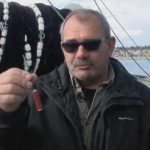
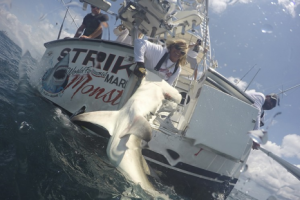
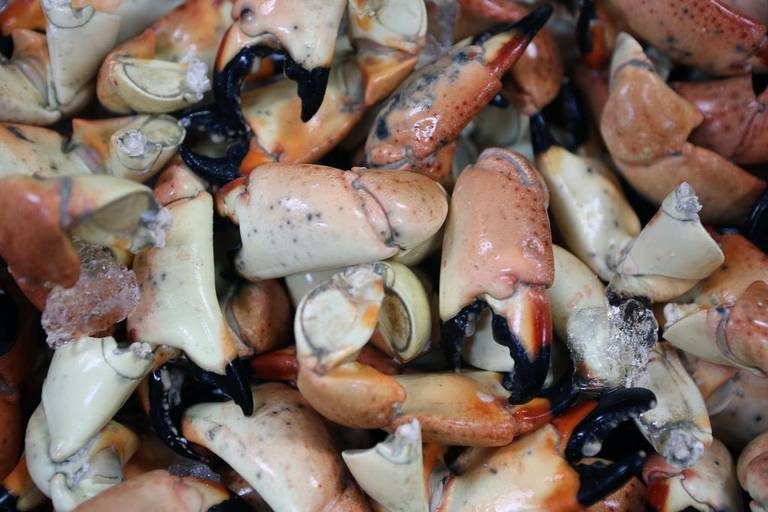
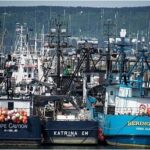

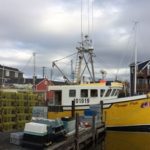


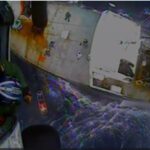
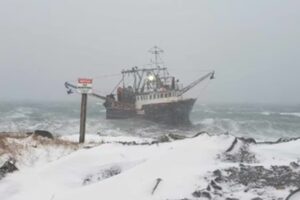



Council Comment Cancel Culture – NPFMC, citing profanity, tightens public comment policy
The North Pacific Fishery Management Council says recent profane comments had prompted the move. Some fishermen and community organizers say that’s a bunch of bull. For all the controversy and emotion that can accompany fisheries debates, the federal council that manages fisheries in the North Pacific says it hadn’t ever received public comments with explicit language, until last month.,, Linda Behnken, says she’s never seen the council move so quickly. “I mean, never seen them bring something up, take action, boom, done without more opportunity for meaningful engagement,” >click to read< 11:42
Share this post